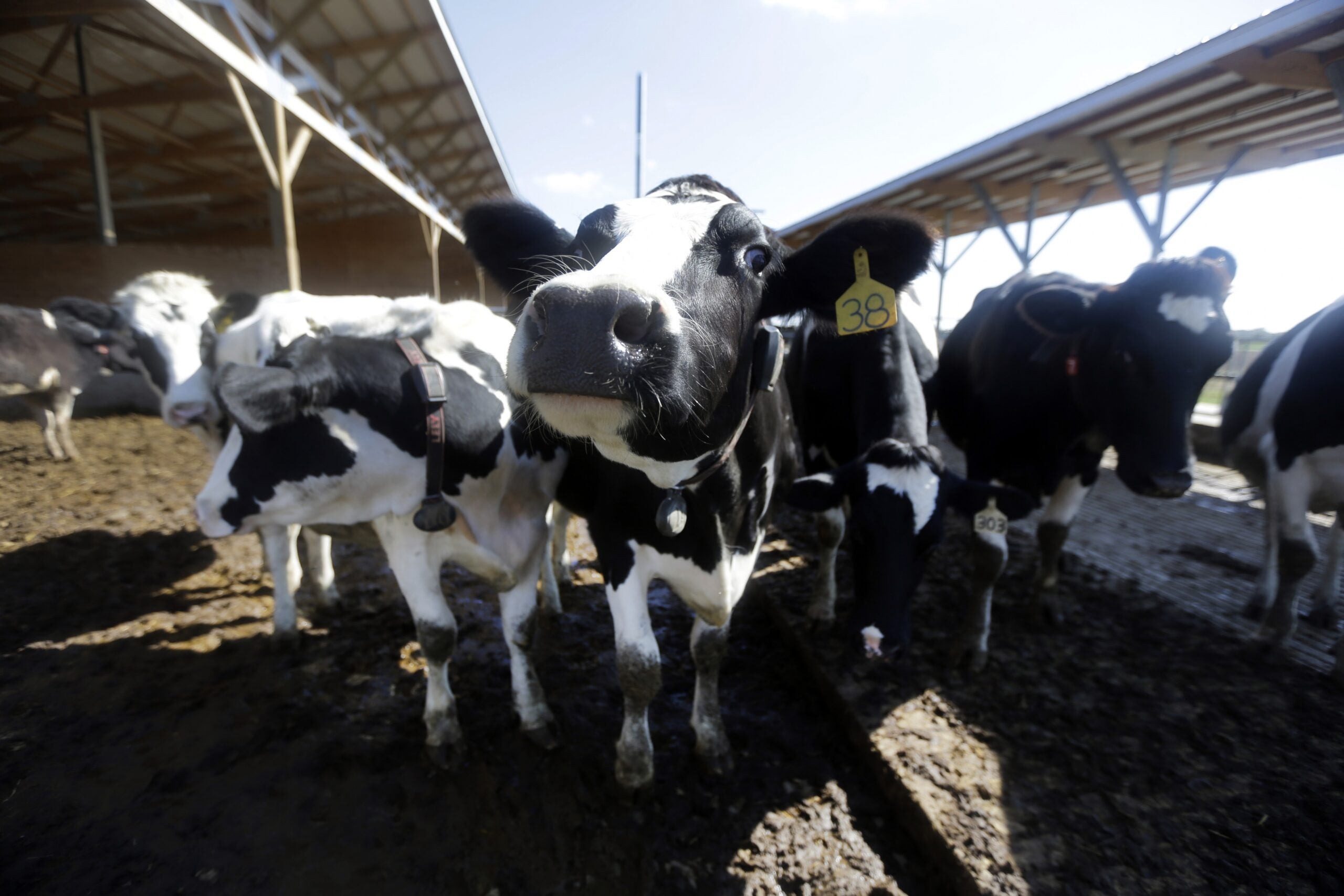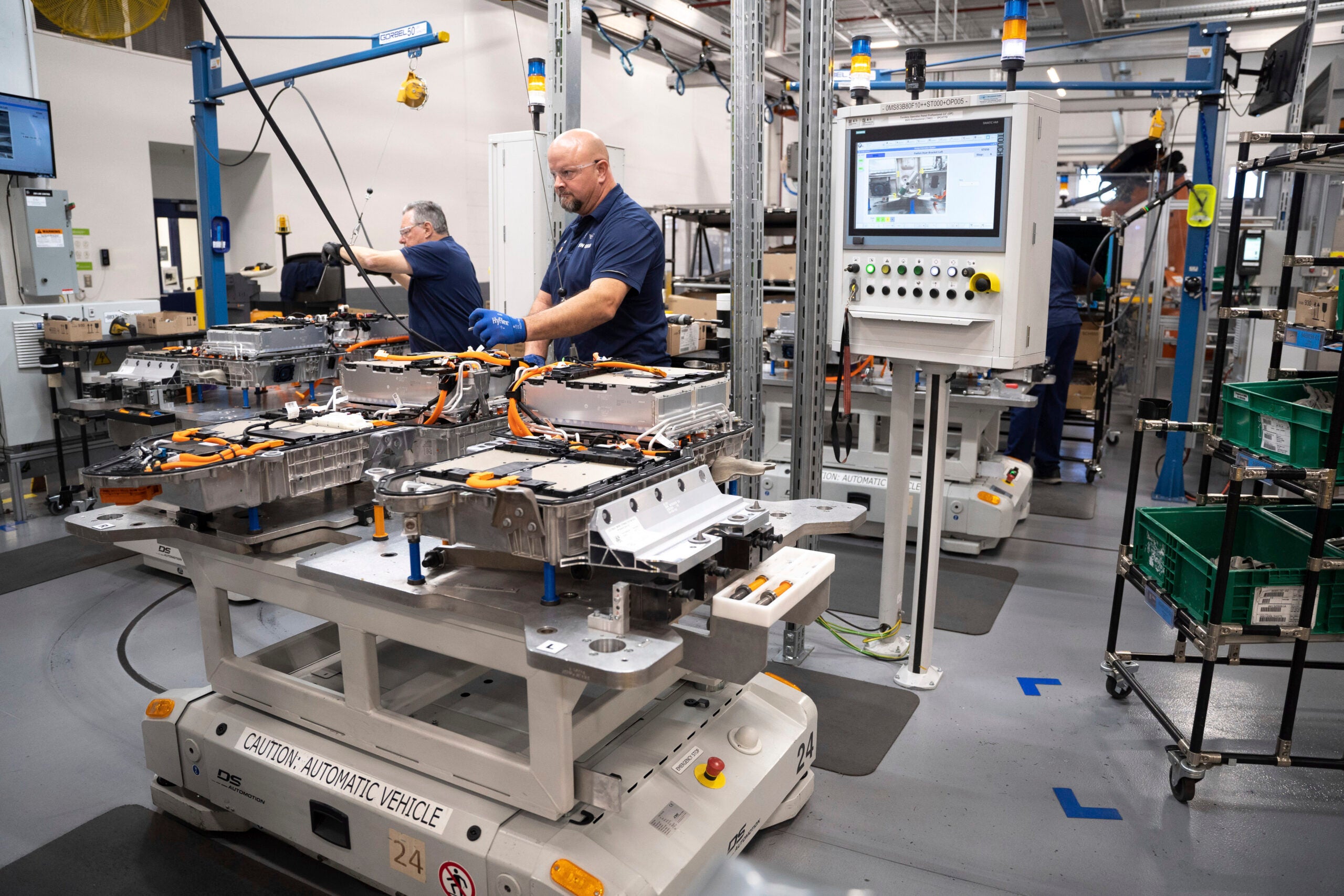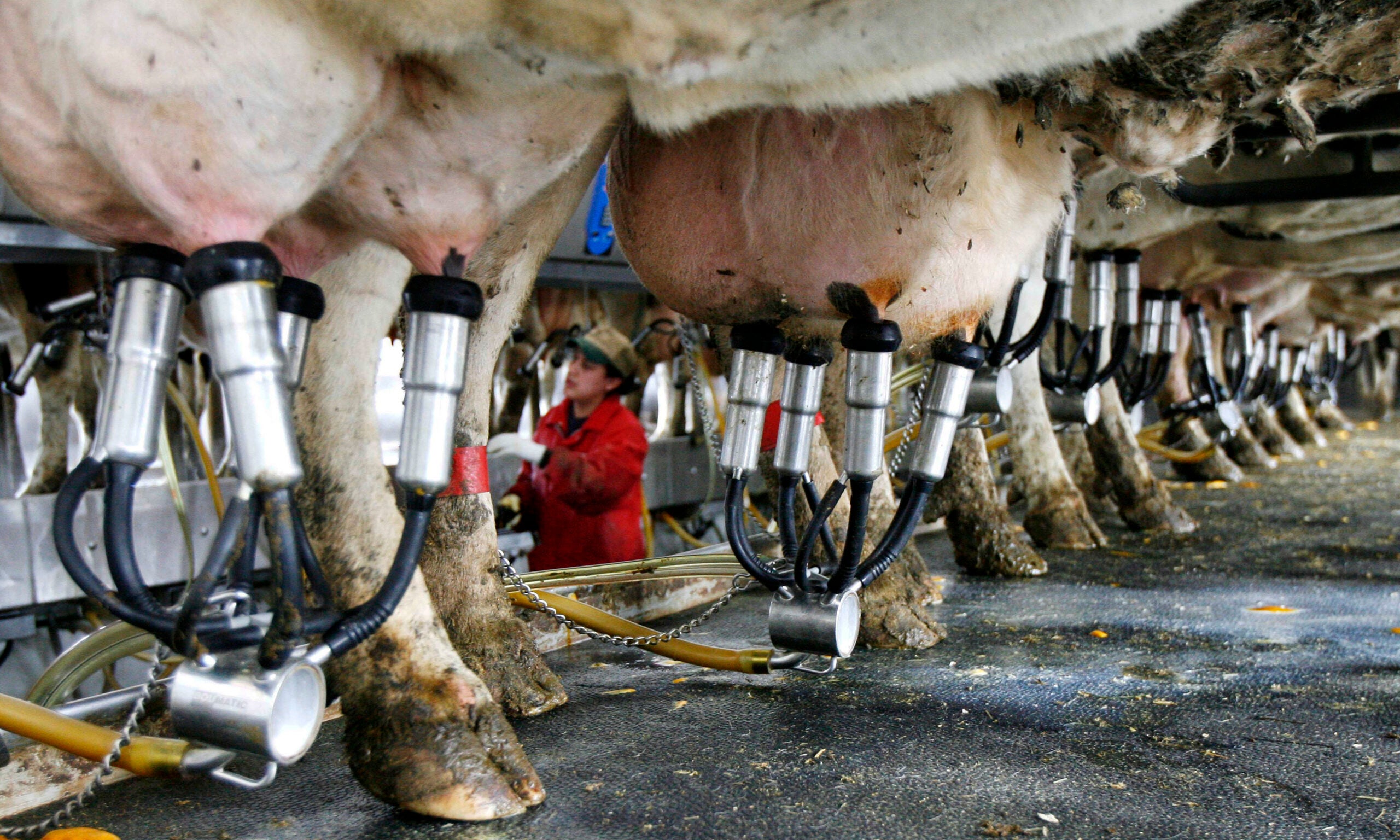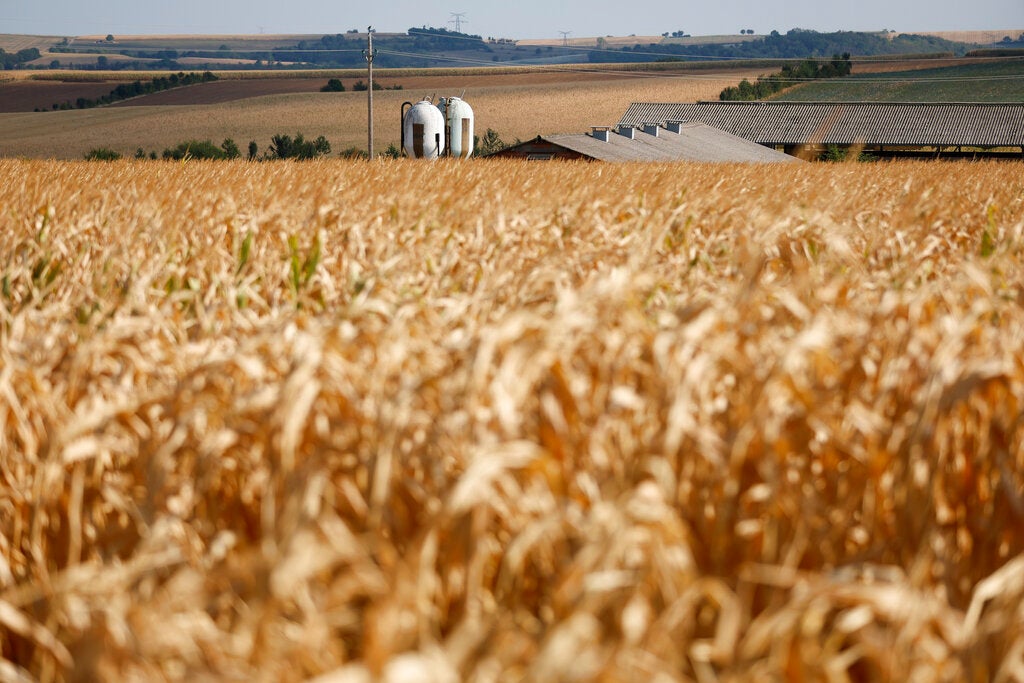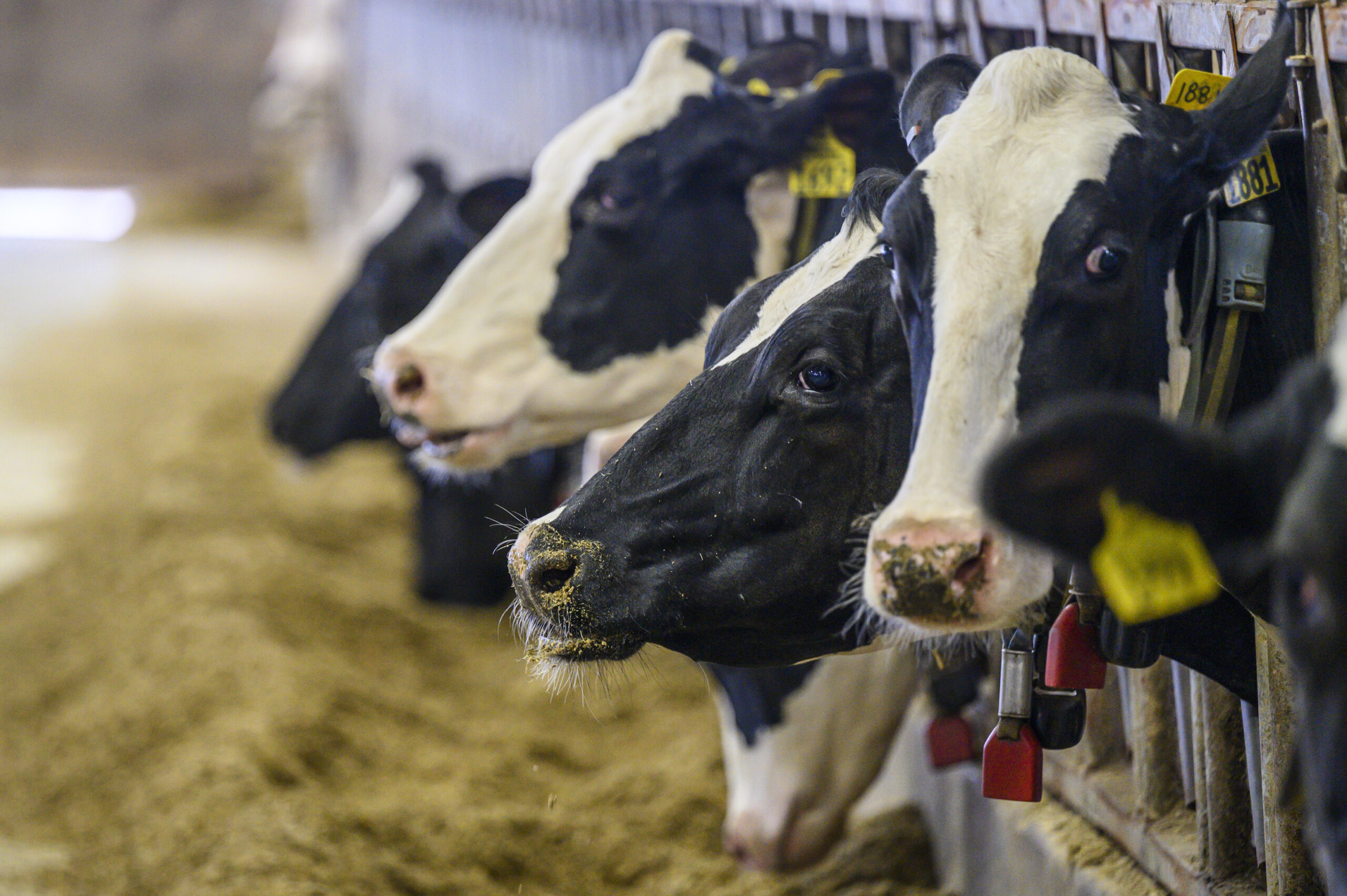Some Wisconsin dairy experts are encouraging farmers to rethink their contracts as an oversupply of milk strains the market.
Traditionally, contracts between Wisconsin farmers and their milk buyers have been informal, said Troy Schneider, an attorney from Chilton who focuses on agriculture.
“Basically they just talk about how the milk plant will be buying his milk for a certain period of time, and not a lot of thought is given into what the specifics are,” Schneider said.
News with a little more humanity
WPR’s “Wisconsin Today” newsletter keeps you connected to the state you love without feeling overwhelmed. No paywall. No agenda. No corporate filter.
Farmers didn’t need to worry about producing too much milk because finding another buyer was never a problem, he said. But an oversupply of milk has changed the market and Wisconsin producers no longer have that flexibility.
Earlier this year, more than 50 farmers struggled to find a new buyer after being dropped by Grassland Dairy Products.
Shelly Mayer, executive director of the group Professional Dairy Producers, said the situation was a wakeup call for dairy farmers.
“It’s making dairy farmers more aware that they better be looking at their contracts to see: Is my processor going to be there for me? Will they need my milk? And if I produce less or significantly more, will they take that milk?,” Mayer said.
Schneider said Grassland was the most visible example of how oversupply is affecting the relationship between producers and processors.
“Milk plants and milk cooperatives trying to get a control on the overproduction right now and the oversupply, that’s commonplace,” he said. “The mechanism that Grassland used to do so probably was the thing that got more attention, but the problem is universal through all milk purchasers right now.”
Given these new market realities, Schneider said milk contracts should include an amount farmers expect to produce to ensure their milk has a market.
“Farmers can deal with change, but that change has to be more gradual than sudden,” Schneider said. “There has to be some supply management occurring but the methodology used has to be well-thought-through.”
But Mayer disagrees that managing milk production is the best way to address oversupply.
She said more communication between farmers and their buyers can help farmers make the right decisions.
“It’s even more important in these difficult economic times for dairy farmers so that you know what your processor’s needs are, your customers up the chain, what their expectations are,” Mayer said. “But also that dairy farm families know that they can count on these partners in their business.”
Wisconsin Public Radio, © Copyright 2025, Board of Regents of the University of Wisconsin System and Wisconsin Educational Communications Board.

